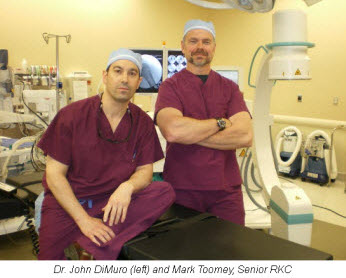
by Art Horne
I recently travelled to Minnesota to visit a few friends and spend time with the strength coaches from both the Minnesota Timberwolves and the University of Minnesota. If you’ve ever been to Minnesota you know that packing a winter jacket is a must and this trip this was clearly not the exception!
My first stop was with Cal Dietz from the University of Minnesota. I’ve mentioned Cal’s new book, Triphasic Training a number of times before, but sitting down with Cal in front of a whiteboard and reviewing his training philosophy gave me a new appreciation and a monumental “ah ha” moment for the three phases of muscle action.
Excerpt from Cal’s book: Preface p. VII
ALL DYNAMIC MUSCLE ACTION IS TRIPHASIC!
That one simple sentence is what ties every sport together and allows all athletes to be trained using the same method, yielding the same results. It is what this entire book is about. Understanding the physiologic nature of muscle action taking place during dynamic movements gives you, the coach, a foundational training method that can be applied to every sport. Couple this method with a periodization schedule that can be altered to fit with any training time frame and you have the tri-phasic undulating block method.
In a very brief and basic explanation that will be expanded upon at length in later chapters, the triphasic nature of all dynamic movement can be broken down into three phases:
1) Eccentric phase: This is the deceleration or lowering portion of the movement. It is associated with muscle lengthening. During this phase, kinetic energy is absorbed and stored in the tendons of the muscle structure to be used during the stretch reflex.
2) Isometric phase: This is where the mass, or athlete, comes to a complete stop before being accelerated in a new direction. (This is actually governed by Sir Isaac Newton’s Laws of Motion. More on that and physics later.)
3) Concentric phase: This is the acceleration of an athlete or mass. It is associated with muscle shortening.
As the adage goes, a chain is only as strong as its weakest link. If your training program consists solely of methods that train the concentric portion of dynamic muscle action, your athletes are heading into the season with a chain consisting of one strong link and two weak links. This book is designed to show you how to develop the other two phases of dynamic human movement with a periodization model that will make all three links strong and optimize the performance of your athletes. Remember that:
ATHLETIC MOVEMENT = DYNAMIC MOVEMENT = TRI-PHASIC MOVEMENT
Now, for the very large majority of us, “triphasic” muscle action is not new. In fact, if you were to look at your college anatomy and physiology books it might be discussed within the very first chapter, but looking at your athlete’s strength programming I’d bet you’ll find it (or at least the isometric and eccentric portions) as scarce as tourists wearing shorts and a t-shirt during a Minnesota winter! Sure you’ll find some isometric holds or eccentric tempos from time to time but rarely will entire phases be dedicated to developing these qualities. And even more rare would be finding these qualities developed or emphasized within a sports medicine rehabilitation program!!
With close to 400 pages of information along with sample programs, Cal’s book leaves no preverbal stone unturned. The addition of video links to each exercise in each sample program and video explanations and other recorded presentations throughout the book makes Triphasic Training one of the most complete training books I have ever read-watched-(and stole from)!
Whether you work in the performance arena and train elite athletes or a sports medicine clinic working with athletes looking to return to activity, Triphasic Training is a must read and will immediately impact each and every athlete you work with!
See Cal Dietz present at the 2012 BSMPG Summer Seminar May 19-20th in Boston.
Register today before seats are sold out!















